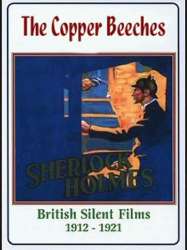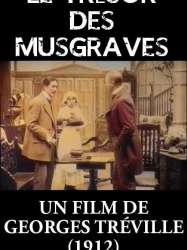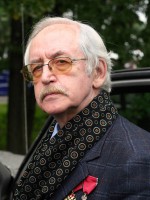Sherlock Holmes

If you like this character, let us know!
Real name Holmes
Sherlock Holmes (/ˈʃɜrlɒk ˈhoʊmz/) is a fictional character created by British author and physician Sir Arthur Conan Doyle. A London-based "consulting detective" whose abilities border on the fantastic, Holmes is known for his astute logical reasoning, his ability to adopt almost any disguise, and his use of forensic science to solve difficult cases.
The character first appeared in print in 1887, and was featured in four novels and 56 short stories by Conan Doyle, as well as later works by other authors. The first novel, A Study in Scarlet, appeared in Beeton's Christmas Annual in 1887 and the second, The Sign of the Four, in Lippincott's Monthly Magazine in 1890. The character's popularity grew with the first series of short stories in The Strand Magazine, beginning with "A Scandal in Bohemia" in 1891; additional short-story series and two novels (published in serial form) appeared from then to 1927. The events in the stories take place from about 1880 to 1914.
All but four stories are narrated by Holmes's friend and biographer, Dr. John H. Watson. Two are narrated by Holmes himself ("The Adventure of the Blanched Soldier" and "The Adventure of the Lion's Mane"), and two others are written in the third person ("The Adventure of the Mazarin Stone" and "His Last Bow"). In two stories ("The Adventure of the Musgrave Ritual" and "The Adventure of the Gloria Scott"), Holmes tells Watson the story from memory, with Watson narrating the frame story. The first and fourth novels, A Study in Scarlet and The Valley of Fear, include long passages of omniscient narrative of events unknown to either Holmes or Watson.
Biography
Early lifeDetails about Sherlock Holmes's life, except for the adventures in the books, are scarce in Conan Doyle's original stories. Nevertheless, mentions of his early life and extended family paint a loose biographical picture of the detective.
An estimate of Holmes's age in "His Last Bow" places his year of birth at 1854; the story, set in August 1914, describes him as 60 years of age. Leslie S. Klinger, author of The New Annotated Sherlock Holmes, posits the detective's birthdate as 6 January.
Holmes says that he first developed his methods of deduction as an undergraduate; his earliest cases, which he pursued as an amateur, came from fellow university students. A meeting with a classmate's father led him to adopt detection as a profession, and he spent six years after university as a consultant before financial difficulties led him to accept John H. Watson as a fellow lodger (when the narrative of the stories begins).
Beginning in 1881 Holmes has lodgings at 221B Baker Street, London. According to an early story 221B is an apartment at the upper end of the street, up 17 steps. Until Watson's arrival Holmes worked alone, only occasionally employing agents from the city's underclass; these agents included a host of informants, and a group of street children he called "the Baker Street Irregulars". The Irregulars appear in three stories: A Study in Scarlet, The Sign of the Four and "The Adventure of the Crooked Man".
His parents are not mentioned in the stories, although Holmes mentions that his ancestors were "country squires". In "The Adventure of the Greek Interpreter", he claims that his great-uncle was French artist Horace Vernet. Holmes's brother Mycroft, seven years his senior, is a government official who appears in "The Adventure of the Greek Interpreter", "The Final Problem" and "The Adventure of the Bruce-Partington Plans" and is mentioned in "The Adventure of the Empty House". Mycroft has a unique civil service position as a kind of human database for all aspects of government policy. He lacks Sherlock's interest in physical investigation, however, preferring to spend his time at the Diogenes Club.
Life with Watson
Holmes works as a detective for 23 years, with physician John Watson assisting him for 17. They were roommates before Watson's 1887 marriage and again after his wife's death. Their residence is maintained by their landlady, Mrs. Hudson. Most of the stories are frame narratives, written from Watson's point of view as summaries of the detective's most interesting cases. Holmes frequently calls Watson's writing sensational and populist, suggesting that it fails to accurately and objectively report the "science" of his craft:
Detection is, or ought to be, an exact science and should be treated in the same cold and unemotional manner. You have attempted to tinge it ["A Study in Scarlet"] with romanticism, which produces much the same effect as if you worked a love-story .... Some facts should be suppressed, or, at least, a just sense of proportion should be observed in treating them. The only point in the case which deserved mention was the curious analytical reasoning from effects to causes, by which I succeeded in unravelling it.— Sherlock Holmes on John Watson's "pamphlet", The Sign of the Four
Nevertheless, Holmes's friendship with Watson is his most significant relationship. When Watson is injured by a bullet, although the wound turns out to be "quite superficial", Watson is moved by Holmes's reaction:
It was worth a wound; it was worth many wounds; to know the depth of loyalty and love which lay behind that cold mask. The clear, hard eyes were dimmed for a moment, and the firm lips were shaking. For the one and only time I caught a glimpse of a great heart as well as of a great brain. All my years of humble but single-minded service culminated in that moment of revelation.
The Great Hiatus
Conan Doyle wrote the first set of stories over the course of a decade. Wishing to devote more time to his historical novels, he killed off Holmes in "The Final Problem" (which appeared in print in 1893, and is set in 1891). After resisting public pressure for eight years, the author wrote The Hound of the Baskervilles (which appeared in 1901, with an implicit setting before Holmes's death; some theorise that it occurs after "The Return", with Watson planting clues to an earlier date). In 1903 Conan Doyle wrote "The Adventure of the Empty House", set in 1894; Holmes reappears, explaining to a stunned Watson that he had faked his death in "The Final Problem" to fool his enemies. "The Adventure of the Empty House" marks the beginning of the second set of stories, which Conan Doyle wrote until 1927.
Holmes aficionados refer to the period from 1891 to 1894—between his disappearance and presumed death in "The Final Problem" and his reappearance in "The Adventure of the Empty House"—as the Great Hiatus: the earliest known use of this expression is in the article "Sherlock Holmes and the Great Hiatus" by Edgar W. Smith, published in the July 1946 issue of Baker Street Journal. The 1908 short story "The Adventure of Wisteria Lodge" is however described as taking place in 1892 due to an error on Conan Doyle's part.
Retirement
In "His Last Bow", Holmes has retired to a small farm on the Sussex Downs. The move is not dated precisely, but can be presumed to predate 1904 (since it is referred to retrospectively in "The Second Stain", first published that year). He has taken up beekeeping as his primary occupation, producing a Practical Handbook of Bee Culture, with some Observations upon the Segregation of the Queen. The story features Holmes and Watson coming out of retirement to aid the war effort. Only one other adventure, "The Adventure of the Lion's Mane" (narrated by Holmes), takes place during the detective's retirement. The details of his death are unknown.
Best films
Played by the actors
Filmography of Sherlock Holmes (78 films)

The Copper Beeches (1912)
, 25minutesDirected by Georges Tréville, Adrien Caillard
Origin France
Genres Crime
Actors Georges Tréville
Rating53%





Rucastle refuse que sa fille épouse William et cherche à la faire renoncer à son héritage si elle se marie. Comme elle refuse, son père l'enferme dans une remise. Ensuite, il prépare un plan pour qu'une gouvernante, qui ressemble à sa fille, amène William à un endroit où il pourrait l'abattre. Miss Hunter, la gouvernante, découvre que quelqu'un est enfermé dans la remise mais Rucastle l'empêche d'aller plus loin. Hunter fait alors part de ses soupçons à Sherlock Holmes qui accepte de l'accompagner...

The Musgrave Ritual (1912)
, 13minutesDirected by Georges Tréville
Origin France
Genres Crime
Actors Georges Tréville
Rating53%





Sherlock Holmes enquête sur la disparition mystérieuse du maître d'hôtel de M. Musgrave, et d'un bijou précieux. Il découvre alors un message mystérieux ...

Directed by Viggo Larsen
Genres Drama, Crime
Themes Sherlock Holmes films, Buddy films
Actors Viggo Larsen, Paul Otto
Rating51%





 Connection
Connection








